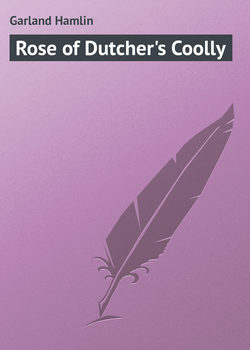Читать книгу Rose of Dutcher's Coolly - Garland Hamlin - Страница 3
CHAPTER III
DANGEROUS DAYS
ОглавлениеA farmer's daughter is exposed to sights and sounds which the city girl knows nothing of. Mysterious processes of generation and birth go on before the eyes of the farm child, which only come as obscure whisperings to the city child of the same middle condition. And these happenings have a terrifying power to stir and develop passions prematurely.
Rose heard occasionally obscene words among the hands. She listened unperceived to the vulgar cackling of old women during afternoon calls. Before her eyes from the time of her toddling youth had proceeded the drama of animal life. She had seen it all; courtship, birth, death. Nothing escaped her keen, searching, inquisitive eyes. She asked her father about these dramatic and furious episodes of the barnyard, but he put her off, and she finally ceased to ask about them. She began to perceive they were considered of that obscure and unmentionable world of sin, with which men alone had proper right to deal.
When the girls of her age in the grasp of some gale of passion, danced about her shouting foul words in the unknowing way children have, she could not take part by word of mouth, though she felt the same savage, frenzied delight in it.
She learned early the hideous signs which pass in the country to describe the unnamable and the covert things of human life. She saw them scrawled on the fences, on school-house doors, and written on the dust of the road. There was no escaping them. The apparently shameful fact of sex faced her everywhere.
And yet through it all she lived a glad, free, wholesome life. Her blood was sweet and clean and kept off contagion. Her brown skin flushed with its unhindered current. She dipped into this obscure questionable world only momentarily, and came back to her father wholesome and happy, except occasionally when some outrageous gesture or word had stricken her into weeping.
Then her father told her not to mind; just be good and sweet herself, and it would help the others to be good too. He blundered sometimes and struggled for words, and talked in grotesque riddles, but she understood his meaning some way and was comforted.
She did not go to her aunt. She had heard her say coarse words and she did not care to go and tell her of these strange things. Her father was her hero and guide. She went to him as naturally as to a mother. It was a great thing for him to achieve, but he did not know it. He did not seek it. It was indeed thrust upon him. He would gladly have escaped from it, but Rose refused to listen to anyone else, so the puzzled and disturbed father continued to be her timorous guide as a matter of need.
He could not understand her quick perception – something seemed to rise in the child to help him explain. Germs of latent perception seemed to spring up like a conjuror's magic seed, here a kernel, there a tree. One by one obscure ideas rose from the deep like bubbles, and burst into thought in her conscious self. A hint organized in her brain long trains of sequential conceptions, which she had inherited with her sex. She did not require teaching on the most fundamental problems of her nature.
Rose began to work early, but her work, like her playing, was not that of other girls. As she never played with dolls, caring more for hobby-horses, so she early learned to do work in the barn. From taking care of make-believe stick horses she came easily to take care of real horses.
When a toddling babe she had moved about under the huge plow-horses in their stalls, and put straw about them, and patted their columnar limbs with her little pads of palms, talking to them in soft indefinite gurgle of love and command.
She knew how much hay and oats they needed, and she learned early to curry them, though they resented her first trials with the comb. She cared less for the cows and pigs, but before she was ten she could milk the "easy" cows. She liked the chickens, and it was part of her daily duty to feed the hens and gather the eggs.
She could use a fork in the barn deftly as a boy by the time she was twelve, and in stacking times she handed bundles across the stack to her father. It was the variety of work, perhaps, which prevented her from acquiring that pathetic and lamentable stoop (or crook) in the shoulders and back which many country girls have in varying degree.
All things tended to make her powerful, lithe and erect. The naked facts of nature were hers to command. She touched undisguised and unrefined nature at all points. Her feet met not merely soil, but mud. Her hands smelled of the barn yard as well as of the flowers of the wild places of wood and meadow.
Meanwhile her comradeship was sweet to John Dutcher. He hardly knew his loss of a son so completely was he companioned by Rose. He had put far away the time when she should wear shoes and long dresses and become a "young lady."
"Let her be, as long as you can," he said to his sister. "She's a mighty comfort to me now, and she's happy; don't disturb her; time to wear long dresses and corsets'll come soon enough without hurryin' things."
